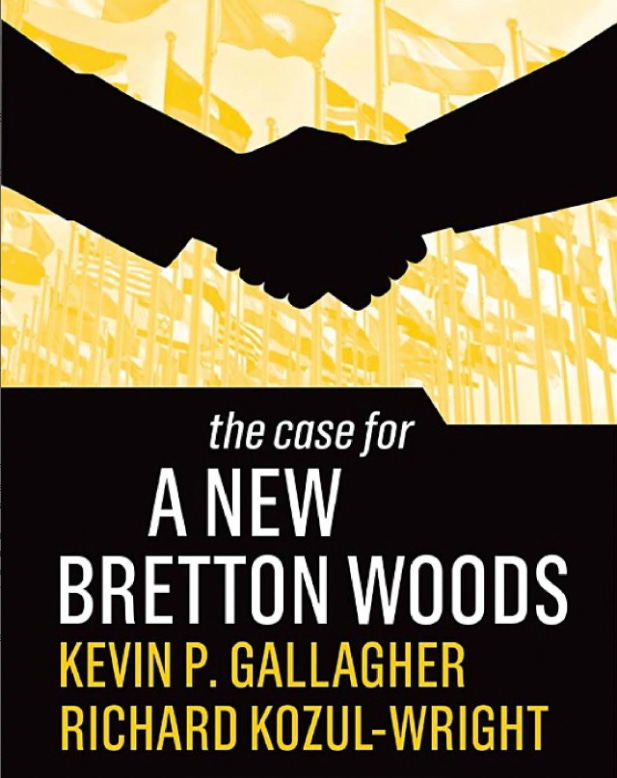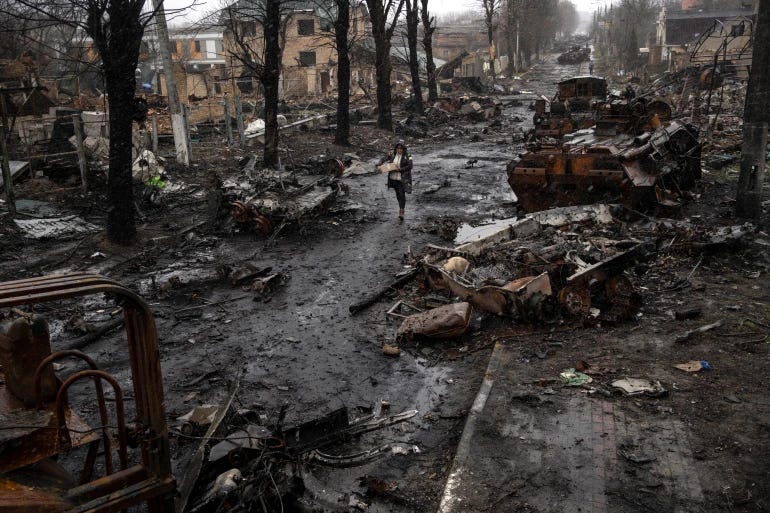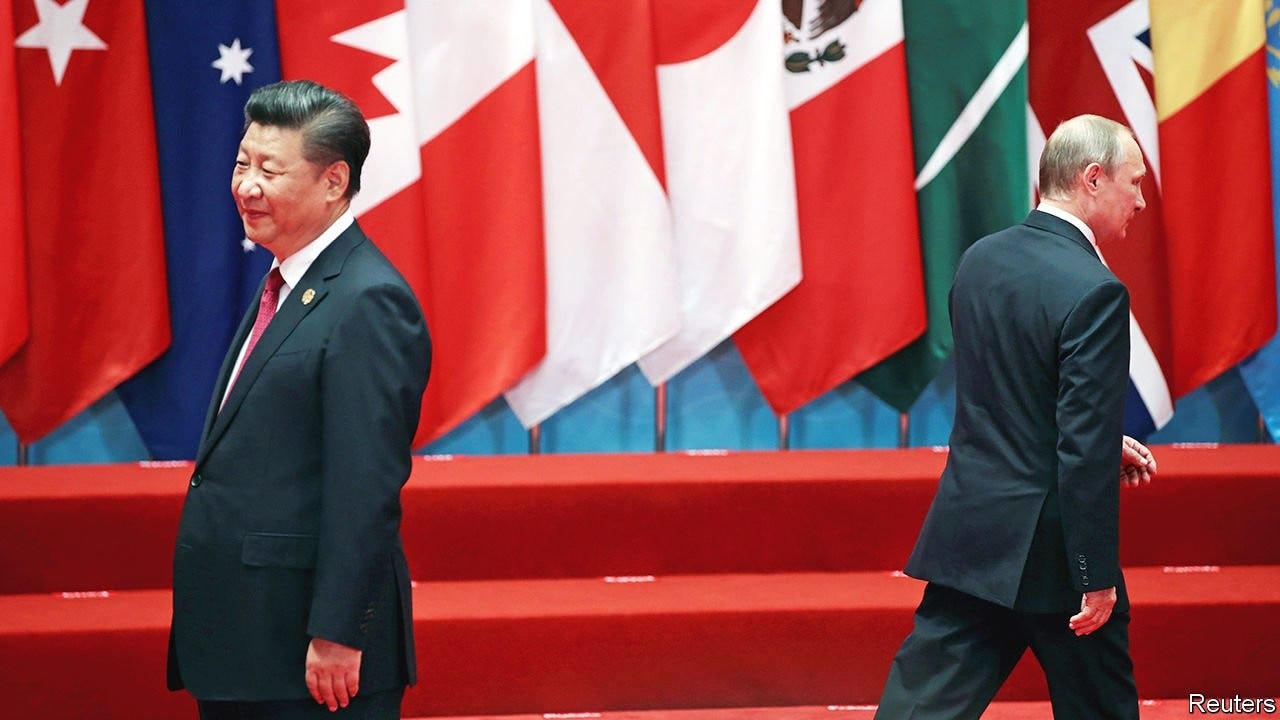SHOCK! Labor election strategy … do things people like …
and other morsels from the web on the weekend of April 8th
Campaigning on your plans to do popular things
Terrific post, which I’m promoting to top of my list this week, from ClubTroppo’s David Walker.
What does “Shorist” mean? Well, David Shor (pictured in that YouTube video above) is a US electoral analyst. In 2020 he was somewhat famously fired by his Democrat-aligned consulting firm. His offence? Pointing, during the Black Lives Matter protests, to research showing that the violent protests of 1968 lost Democrats votes, while non-violent protests gained them votes …
Australian Labor Party leader Anthony Albanese has been running a strategy that looks almost as if Shor was advising him. It’s popularist in the Shor sense of the word – which means it’s centred on left-wing policies that people really like. …
He’s been relentlessly pushing the aged care issue ever since the Budget. And the strategy behind that push seems kind of perfect. This sort of policy pops up in Shor’s US analysis as some of the best ground for a left-wing party.
I’m not sure whether Shor has tested aged care, but he has certainly tested health care in general. In Shor’s testing, telling voters that Democrats want to make health care cheaper polls very well indeed. (Telling people that Donald Trump is a terrible person, in contrast, doesn’t work at all.) There’s every reason to think health care works for the left in Australia, too, for similar reasons. And aged care is a particularly compelling issue.
Steve Randy Waldman on competing by cooperating and the wages of ungenerosity
My favourite post this week [until I ran into the one above — with apologies to readers overseas].
One difference between the washup of world wars one and two was the mean and punitive washup of the first and the generosity of the second. How much did the US reap from the 2 percent of GDP it devoted to the Marshall Plan from 1948 on. The US and the wider west failed to do the same at the fall of the Berlin Wall. I don’t know how much they could have alleviated the suffering but Russia’s went through a much more prolonged economic slump than occurred in the Great Depression. And then there’s the gobsmacking ungenerosity of the west during the COVID episode where it was obvious that it would itself benefit more than it would have cost it to really throw itself into the global effort against COVID in those countries that desperately needed help. We helped a bit of course, but nothing like as much as was in our own interests. Looking back in hindsight, as Steve Waldman does below, is not a pretty picture:
The West by now on its own could have produced and distributed, or assisted very capable countries like India and, yes, China, to produce and distribute, its highest quality mRNA vaccines to all of the inhabitants of the planet willing to take it. On humanitarian grounds, and others, but not just on humanitarian grounds, the opportunity we have lost by failing to do that is absolutely extraordinary. Now that we are in a military crisis, would India be quite so nonaligned if we had more generously supported its health and welfare, commercial and other formalities be damned? Is it possible, if we had transferred this technology (that they will learn within a year or two regardless) that China might not treat us with such cold hostility? Iran? That perhaps even Russia, led by the man it is led by, would have been moved to a less bellicose posture. Perhaps not! … But how much would it really have cost? And regardless of its effectiveness as a charm offensive, how many lives might it have saved? On both political and humanitarian grounds, it was a foolish bet not to take.
Paying attention: The public goods of the 21st-century
In this conversation, Peyton Bowman and I complete the elaboration of what I’ve suggested are the four principles of a flourishing society. We do so via an extension of the economists’ notion of the complementarity of public and private goods. For economists, those goods you buy in the market are private goods. Competition is also a good thing in ensuring those private goods are the best they can be. But we also need public goods — which are goods markets won’t provide. In this schema, cars are private goods and roads are public goods.
But where economists apply this idea to goods, in this conversation we explore how they can be extended to social institutions. A line to get onto a bus, a game of tennis — even a conversation — are all what I call ‘ecologies’ of public and private goods. And that gives us a key to what’s gone wrong in our world. Because more and more the ecology of our institutions is becoming unbalanced and unhealthy, as what should be shared is colonised by powerful special interests. Here’s the audio.
Coalition Government keeps stacking the AAT
The Morrison government has done something absolutely shocking and entirely predictable. It announced that another batch of Liberal Party friends, flunkies and failed candidates would be given very highly paid jobs for up to seven years as members of the Administrative Appeals Tribunal (AAT), the quasi-judicial review body. The appointments are made without an open interview process and are entirely at the discretion of the government.
The arrangement is utterly corrupt. It couldn’t be more brazen … It is also a sobering tale of the media’s failure to recognise the gravity of what has unfolded and to ring the alarm loud and clear as pillars of democracy come under attack. The media will need to have its own reckoning at some point to come to grips with its role in normalising corruption.
US executives reap record pay as historic income gap with staff widens
Post-pandemic stock market rally delivers larger windfalls to bosses than to employees
Speaking of generosity…
Andrew Sullivan’s problem with Jon Stewart
How painfully, cringingly super-woke must a comedian get to stay relevant?
I’ve always been a big fan of Jon Stewart — back when satire was still possible, he (with Stephen Colbert) helped keep us sane through the first great weirding of the years of “W”. Sullivan also does overdo his concerns about wokedom given all the other things in the world there are to worry about — which was something addressed by Jonathan Rauch in his interview with Sullivan many months ago now. Nevertheless, at least going on what he says, the show sounds excruciating.
Some of the links are worth pursuing also — like this one.
Curtis Yarvin: alt-right anti-democratic thinker
Brilliant analysis of our ills coupled with childish conclusions about where they point.
I find Curtis Yarvin’s missives against the bankruptcy of our institutions compelling. On the other hand, where that takes him as far as solutions is concerned is not to be taken seriously. He certainly hasn’t taken it seriously himself. In that, he’s like most revolutionaries on both he left and right I guess. I tried to say a little about what I thought was valuable about this way of thinking in my essay on why I describe myself as alt-centre — I didn’t mention him, but without him I wouldn’t have read James Burnham’s The Machiavellians. Be that as it may, if you want to read a profile of Yarvin, I didn’t think this was much good (other than the fancy bit of op ed art above), but it may be worth your time.
Back to the dark ages: Afghanistan edition
The economist reports:
Many girls had looked forward to going to secondary school on March 23rd. But the Taliban broke an earlier promise and barred them, citing their supposedly immodest uniforms. … Afghan women who venture far from home will now need male chaperones, making it impractical to hold down a job and needlessly hard to visit a hospital. Parks are to be segregated by sex, to preserve public morals. Foreign broadcasters such as the BBC were taken off local channels. And it was reported that government employees will be obliged to wear traditional dress and sport beards. That would be tricky for women, had they not mostly been sent home months ago. … Though the Taliban claim to have mellowed since they first ran the country in 1996-2001, many of them plainly have not. Granted, they now allow girls to attend primary school, which they banned before. But once those girls hit puberty they must put down their books and stay out of sight.
Is philosopher Peter Singer a hypocrite?
Short answer: Yes, but less than most of us.
Given how much more he gives to alleviate suffering in the world than me or most others I know, I’m pretty loath to say he’s a hypocrite. But it’s an interesting discussion with some interesting quotes from the article someone pointed me towards.
It also led me to this lengthy write up of Singer. It was too lengthy for me to persevere with reading it all but what I read was quite interesting, particularly the clarification Singer offered as to why he was involved in going to such lengths to have his Alzheimic mother cared for:
He explained that the extensive care he had provided his mother was not entirely his idea, there were family pressures, and so forth. The striking thing is that he was clearly more interested in defending his curious theory than in defending his commendable care for his mother.
Our ailing international economic architecture
Adam Tooze looks at our increasingly dysfunctional global economic architecture and paints a depressing picture.
Ukraine
Beyond financial sanctions: How to cripple the Russian death machine for good.
A good, longish Noah Smith piece
I see four basic things the West can do:
Export controls
Weaning Europe off of Russian gas
Draining Russia of smart and competent people
Reducing oil prices by switching to electric vehicles
This is a proxy war with the West
Russia being the pinnacle of “the rest” for a future world order
The stakes of the Russian elite are very high – for them, it is an existential war
Sergey Karaganov, former Kremlin advisor
Steve Waldman: Stop the War
Russia has paid a high cost in blood already, and its citizens will pay an extraordinary cost in deprivation until the sanctions are reversed. Yet the focus of the Western world remains how to make it hurt more, both economically and militarily. That may be reasonable while the aggression continues. But we should all be very clear that the goal now is to stop the aggression and limit the suffering of all parties. In my view, the outside world is focused far too heavily on vicariously fighting an inspiring fight and far too little on ending the misery and negotiating a peace. The Ukrainian resistance has been inspiring. But don’t mistake an inspiring fight for a good fight. War is evil. With every battle won so much more is lost. Every soldier left to rot on the battlefield is an eternity of tears. This is not a football game. There is no glory …
It makes no sense, it is profoundly a bad idea, to sustain the war in hopes some backlash provokes Putin’s departure. That is at best a speculative enterprise paid for in others’ blood and misery. It is also a very reckless gamble. L’etat, c’est moi is not an unusual sentiment among autocrats. The circumstance most likely to provoke nuclear war is existential threat to l’etat. It would be great, fantastic, if the Russian Federation undergoes an orderly succession of leadership. But that is their business, no one else’s, to encourage or impose. … Isolating states whose leadership we dislike is a tried and true tactic of the United States, see Iran, North Korea, Venezuela, Cuba. These are not success stories. We engaged with China, from the 1990s until 2016. It didn’t become a liberal democracy, as many hoped, but we did enjoy a warm partnership during that period, before we adopted a more adversarial tone under the Trump administration. Our relationship with China was bad for us, economically. But that was because we failed to look after our own interests, despite having every necessary tool to do so. We should go back to building a warm partnership with China, but do a better job of looking after our economic interests. Building a warm peace with Russia does not preclude carefully attending to both states’ security interests. On the contrary, it is prerequisite.
The Economist on China, Russia and Ukraine
China, is a study in patience. Privately, its officials project confidence that time will deliver a post-war settlement that is greatly to China’s advantage. … [It] maintained a stance of pro-Russian pseudo-neutrality, murmuring about the need for peace while echoing Mr Putin’s arguments that he is defending Russia against America and its expanding nato alliance.
Now Western governments fear that China may have decided to “sit back and watch the disaster”, as a diplomat puts it. In their analysis, China expects Russian brute force to prevail within weeks. They worry that the plan of Chinese leaders is to be more assertive in pushing for a ceasefire only once Mr Putin has avoided humiliation, perhaps by taking the Ukrainian capital, Kyiv, which is being shelled. Then China may offer to rebuild Ukraine’s shattered cities, hoping that its economic heft will oblige other countries to forget weeks of Chinese indifference to Russian crimes.
Taking your medicine for past irresponsibility: Krugman on German hypocrisy
As some readers may remember, early last decade much of southern Europe faced a crisis…. German officials were quick to blame these countries for their own plight, insisting, with much moralizing, that they were in trouble because they had been fiscally irresponsible and now needed to pay the price. As it turns out, this diagnosis was mostly wrong. Much of [market panic disipated] after the European Central Bank said three words — “whatever it takes” — suggesting that it would if necessary, step in to buy the debt of troubled economies.
Yet Germany took the lead in demanding … extreme austerity measures. The costs were immense: Between 2009 and 2013 the Greek economy shrank by 21 percent while the unemployment rate rose to 27 percent. But Germany … has been unwilling to impose far smaller costs on itself [around 2% of GDP] despite the undeniable irresponsibility of its past energy policies.
Is Orthodoxy finished?
By N.N. Trakakis
Orthodoxy has failed to meet the challenges of modernity, and [Russia’s Archbishop] Kirill is only the latest and saddest manifestation of this. Orthodoxy is here in a predicament analogous to Islam. In fact, in June 1999 …Kirill (then Metropolitan of Smolensk and Kaliningrad) and Muhammad Ali Tashkiri (Shia cleric and advisor to Ayatollah Ali Khamenei) expressed their unified stance against what they perceived as an attack from Western liberal values. This siege mentality, which seeks to protect the purity of faith from contamination from the secular West, has become a common feature in the psychopathology, not only of fundamentalist Islamic clerics in Iran, but also of Orthodox bishops in Moscow and monks on Mount Athos …
Even if Orthodoxy can co-exist with a democratic state, the vital question [is] whether Orthodoxy itself — its institutional structures and forms of governance — can be democratised. For even if the church relates to the world through democratic means (persuasion, not coercion), this does not necessarily mean that the church will also relate to itself (to its own members) in democratic fashion. And this is precisely the problem today: the Orthodox Church eschews democratic forms of (self-)governance. The laity, especially women and LGBTIQ+ persons, continue to be marginalised, while diversity, doubt, and dissent continue to be viewed as dangerous rather than as necessary elements of a flourishing, self-critical community.
Fruitcake watch
How Donald Trump Captured the Republican Party
A slight review of what is probably a slight book, but the review starts with a bang!
When Trump announced his candidacy … there was little indication the event would alter American political history. … But Trump did make an impression on Steve Bannon, a voluble conservative activist plotting his own takeover of the Republican Party. Watching the reality-television star deliver remarks from the Trump Tower food court to a crowd that allegedly included actors who had been paid $50 to hold signs and cheer, Bannon couldn’t contain himself. “That’s Hitler!” Bannon said.
He meant it as a compliment.
Madison Cawthorn
I hadn’t taken any interest in Madison Cawthorn, but this is quite something.
See also this tweet thread on Cawthorn being interviewed on CNN with forensic skill.


Here’s the whole interview if you prefer:
Extraordinary
Meanwhile …
A modern morality tale































